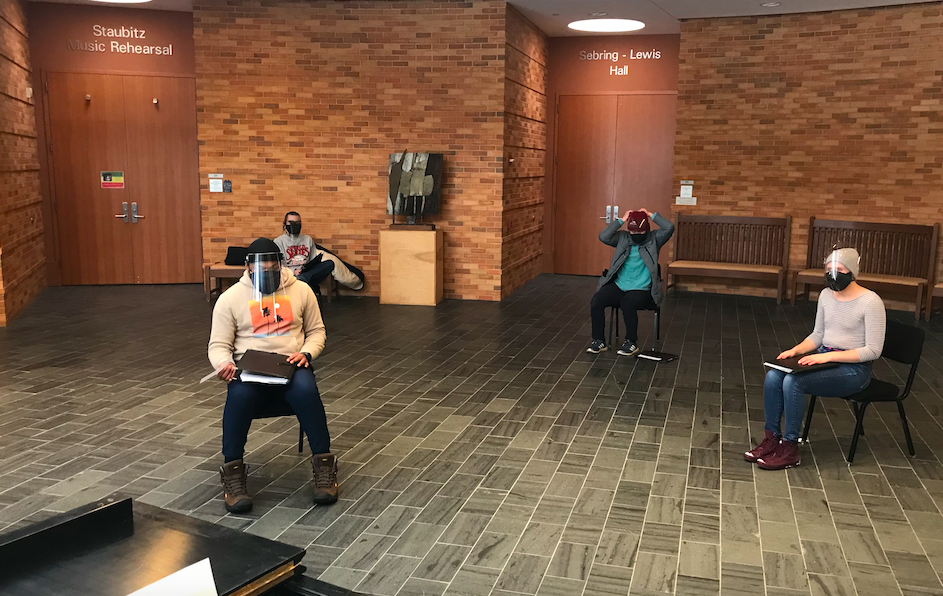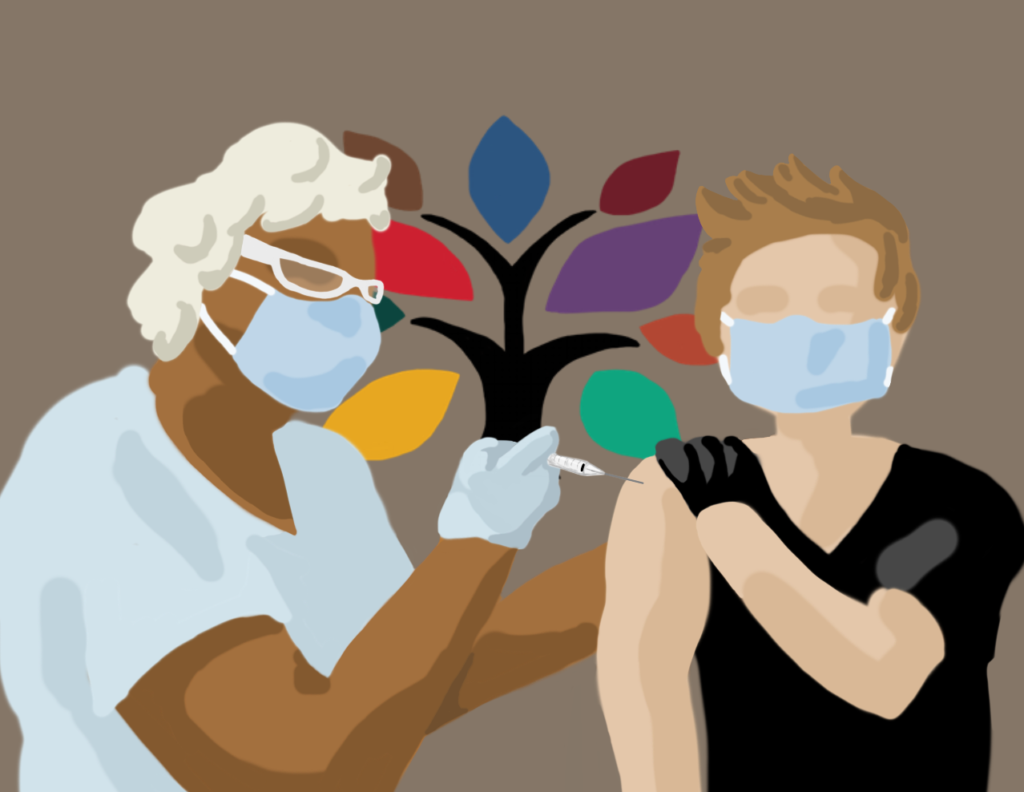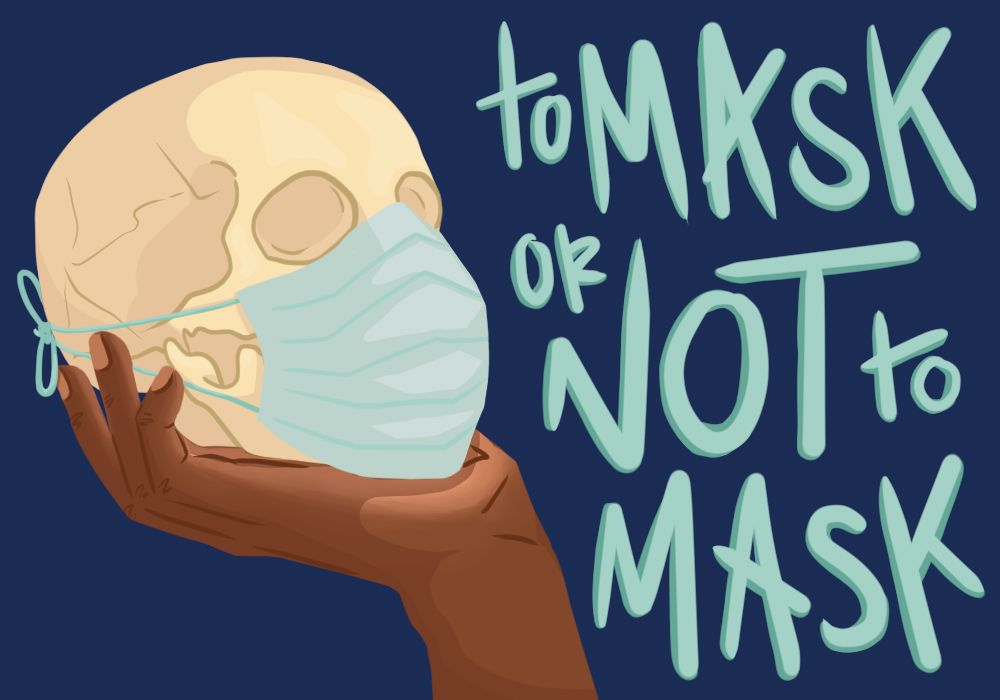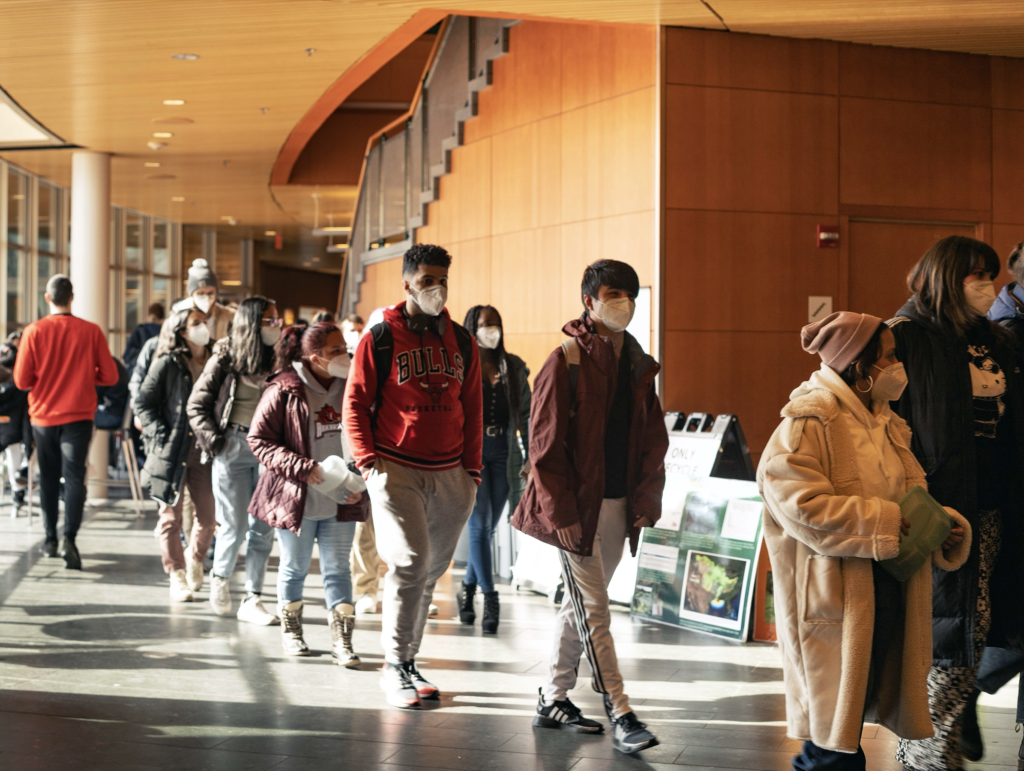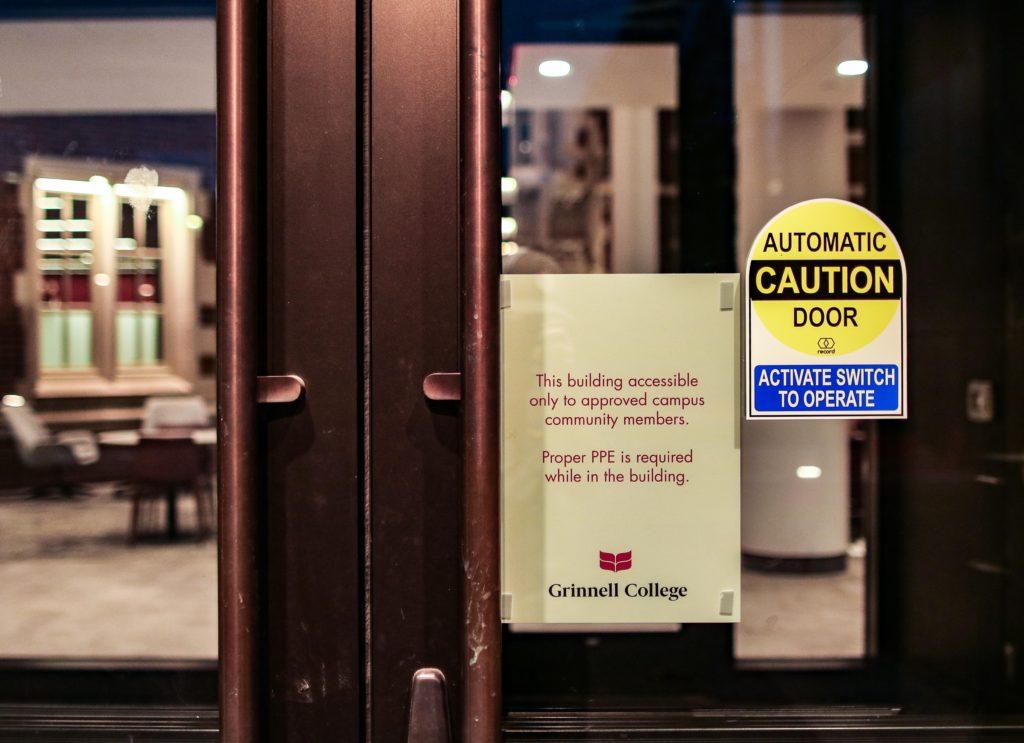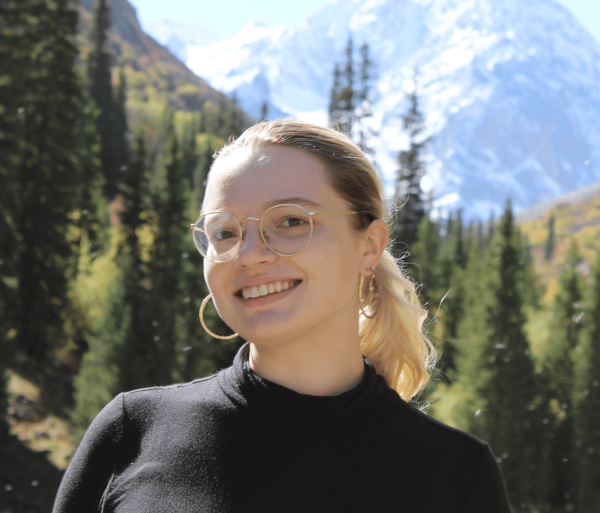After nearly a year, Bucksbaum Center for the Arts is no longer silent. In the building’s rotunda, Professor John Rommereim is now conducting six weekly rehearsals for Grinnell Singers after months singing with each other only through their computer screens.
“Being in one place together is at this point such a privilege,” said Rommereim. “We can share the space sonically, make a chord at the same moment and live that music.”
As campus capacity expands to include first-years on campus, student groups like Grinnell Singers and the Jewish student organization Chalutzim are reuniting in-person with socially-distanced events.
Twenty-eight members of Grinnell Singers are living on-campus for Spring Term 1. Each in-person rehearsal is limited to 10 members for 30-minutes total, so each member only practices two to three times each week.
At practice, members must maintain a 10-foot distance from each other and are required to wear special masks with wire frame inserts on the edges. These masks are designed to keep the cloth away from the mouth so that as they breathe in for more air, the fabric won’t inhibit the circulation necessary for singing.
Rommereim said they spent half of their first rehearsals just setting up their masks until they finally fit each student correctly. He also said that, even with wired masks, hearing each other through face shields makes conducting the choir difficult due to muffling of each singer’s voice.
“There’s some other barriers,” Rommereim added. “It’s hard to immediately recognize everyone because they’re so covered.”
Even with the in-person meetings, many students living off-campus still practice virtually. To bridge the divide between each set of students, Rommereim is working towards what he calls “hybrid performances,” where recordings of on-campus students singing in groups will be compiled with recordings of individual off-campus students.
As for Chalutzim, Cultural Chair Batyah Selis ’21 said that the addition of first-year students on campus has allowed the group to add an in-person component to their weekly Shabbat services, which were previously held exclusively over WebEx.
On Friday evenings, Chalutzim members living on- or off-campus in Grinnell may now choose to attend socially-distanced Shabbat services in the auditorium at Hotel Grinnell. The first in-person Shabbat, hosted on Feb. 5, combined the in-person gathering with other students connecting online.
“We had a computer there, connected to the Webex link,” said Selis. “It’s definitely not perfect, because people [in the auditorium] have to socially distance from each other, but also still listen to the computer and interact with the people online.”
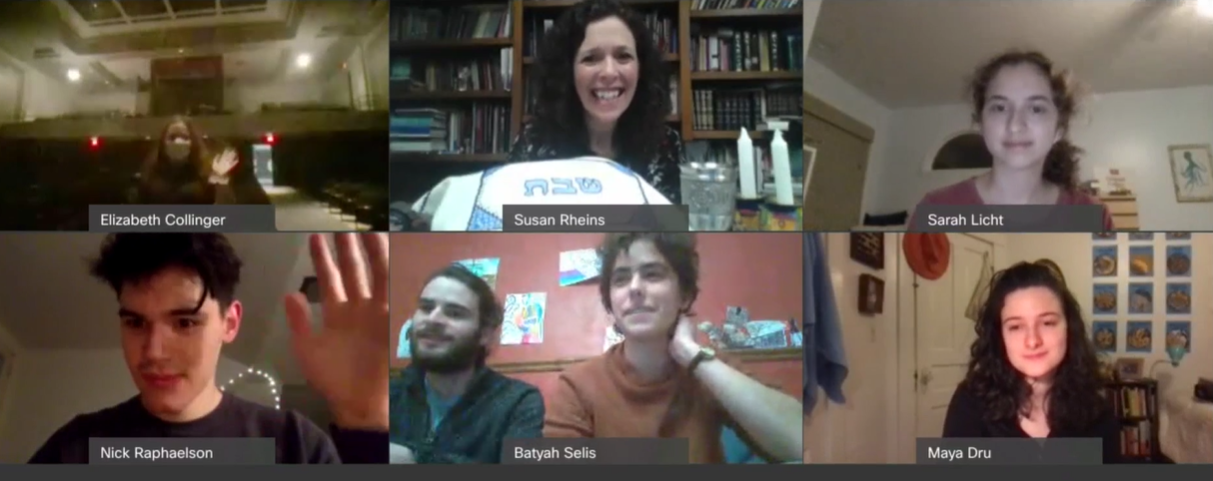
Selis said she is optimistic that the hybrid model will become smoother over time and despite difficulties, the gathering went great for the students who attended in-person.
For Selis, seeing first-year students who had never met before finally embrace Chalutzim in-person was a joy and a relief. One of the most important aspects of Chalutzim prior to the COVID-19 pandemic, Selis said, was the fostering of a casual community in which Jewish students could feel comfortable sharing experiences they may not share with non-Jewish students.
“Last year when we had our weekly meetings, some people would just drop in and say that, ‘You know, this thing happened in class today, and they were talking about Jews in this way,’ and it was just a place people could share that experience without judgement,” said Selis.
“Just to have first-years be able to come together and meet each other in-person, . . . it seems like these are the types of events that are really important for just creating community that’s actually going to last and support people.”
Chalutzim is also planning in-person events beyond just Friday-night Shabbats. Selis is hoping to coordinate events for the Jewish holidays of Purim, Feb. 26 to Feb. 27, and Passover, March 27 to April 3, though further details are yet to be determined.
Rommereim expressed a similar joy he felt at finally reuniting with students in person.
“To have these buildings go empty for so long, and now to finally hear human voices . . . it gets me all choked up just thinking about it.”













































